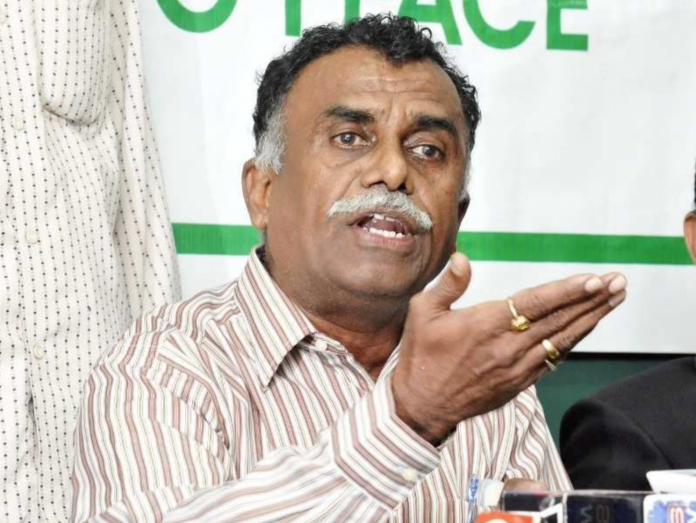
In the wake of the 2002 Gujarat riots, Sreekumar questioned the Narendra Modi administration’s claims of peace and exposed the apparent collaboration between law enforcement agencies and rioters.
Muhammed Nihad PV | TwoCircles.net
NEW DELHI — After the Supreme Court rejected a petition by Zakia Jafri challenging the Special Investigation Team’s (SIT) clean chit to Narendra Modi in the 2002 Gujarat riots case, the Gujarat police on Saturday detained former Director General of Police RB Sreekumar. Based on a complaint made by a representative of the Ahmedabad crime branch, who said they had planned to falsely accuse innocent persons, he was detained along with social activist Teesta Setalvad. The arrest took place hours after Union Home Minister Amit Shah criticised the role of “a police official” in the case against Modi in an interview with ANI. The FIR also names Sanjiv Bhatt, a former IPS officer who is now in prison facing other allegations.
Who is RB Sreekumar?
Sreekumar, a former DIG, began his career in the Indian Police Service in 1971 and left in 2007. During the 2002 Gujarat riots, Sreekumar was the additional director general of police in command of the armed section. Sreekumar, who is from Thiruvananthapuram in Kerala, was chosen by Modi to be the Additional DGP (Intelligence) in April 2002. After the Godhra train burning incident on February 27, communal tension had already spread throughout the state at that point. When a report he submitted to then-Chief Election Commissioner J M Lyngdoh stated that 154 of Gujarat’s 182 constituencies had been affected by the riots and that more than one lakh individuals had lost their right to vote due to displacement, that was when he had his first face-off with the state government. The government’s assertions that the atmosphere was calm enough for assembly elections were refuted by his claims.
Apart from that, he submitted multiple affidavits before the Gujarat government’s Justice (retired) GT Nanavati and Justice (retired) Akshay Mehta Commission, while he was in service. Through the reports, he claimed to have revealed “the alleged cooperation of government agencies with rioters”. He claimed that police and order agencies had a hand in inflaming the situation and that the officials had “tutored” him into saying particular things.
The evidence provided by Sreekumar, fellow IPS officers Rahul Sharma and Sanjiv Bhatt, and others were rejected by the Nanavati-Mehta Commission because it was deemed to be “false,” “baseless,” or “not credible.” These claims were later dismissed by the Supreme Court of India too. While Bhatt was fired from his job and is currently in jail in connection with a 1996 drug case, Sharma retired voluntarily from the police force and is now an attorney in the Gujarat High Court. Sreekumar was replaced in 2005 after submitting his affidavits and going through cross-examination before the Nanavati-Mehta Commission in 2004. As a result, he missed the opportunity to become DGP while still in service.
Later, he moved to the Central Administrative Tribunal (CAT) challenging the government’s decision. His petition included a “secret diary” documenting “illegal directives” he allegedly received while serving as the state’s top intelligence official. Sreekumar received a departmental charge sheet from the Gujarat government in 2005 for “keeping a private diary and making it official, recording a meeting with a government official, and leaking intelligence reports to the media.” The charge sheet was suspended by the Supreme Court in 2015. Although the CAT ruled in favour of his promotion on the day of his retirement in 2007, the state government challenged it before the High Court and then the Supreme Court. In 2008, Sreekumar received a promotion to DGP rank with ex post facto effect after the Supreme Court rejected the government’s appeal. He decided to stay in Gujarat even after his retirement in order to, in his words, “help riot victims.”
Sreekumar graduated from Kerala University with a master’s in history, and he also possesses master’s degrees in criminology, English literature, and Gandhian philosophy (LLM). He published a book on the 2002 Gujarat riots, titled “Gujarat Behind the Curtain”, in 2015. In the book, he even describes how he promised to testify about the establishment’s involvement in the riots and claimed to be willing to submit to narco analysis and brain fingerprinting tests. But none of his requests was heeded.
Muhammad Nihad PV is a sociology student at the University of Hyderabad. He tweets at @nihadbinnisar

